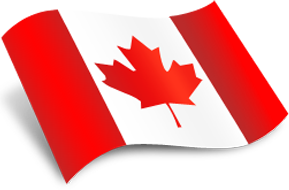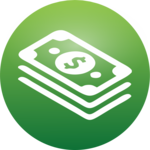
How to Budget Successfully
How to Budget Successfully

What Is a Budget, And Why Do I Need One?
A budget is a financial planning tool that allocates your future income to your expenses over a defined period of time. Most family budgets are done month-to-month. Budgets are useful because they allow you to plan and control your spending, which is why they are used by everyone from families to companies to governments. In fact, the mere act of making a budget can help you to cut your spending significantly by identifying areas of unnecessary spending.
Income
The first rule of counting your income for your budget is to be conservative. If you have a fixed number of hours per week or, even better, a salaried job, then figuring out your basic income is easy. Otherwise, take a low estimate of the number of hours you’re likely to work and budget accordingly. That way, you’re less likely to be left with an unexpected shortfall at the end of the month. If you’re self-employed remember to take taxes into account, otherwise April will be a very uncomfortable month. Include other regular sources of income as well: this can be anything from interest on your savings to rental income from your property. Don’t include any unpredictable windfalls such as tax refunds, however. Don't count getting help from new payday loan companies as income. Even if it's a small amount. Borrowed money is after all, borrowed money.
Track Your Spending
Don’t guess how much you spend each month. Look at your bank statements and receipts and find out how much you’re actually spending. Make sure to categorise your spending, because figuring out where every dollar is going will make it much easier to identify potential savings. A spreadsheet is the perfect place to do this. Divide your spending into categories like utilities (water, power, cell phone), food, housing costs, vehicle costs, and so on. Try to distinguish essential costs like rent and debt repayments from non-essential ones like restaurant meals. Once you have a total for the month, compare it to your monthly income. If your expenses are greater than your income, it’s time to cut back on spending (or get a better job, but that’s more difficult). Even if you aren’t in the red, it can still be worth looking for areas in which to make savings, both to increase your flexibility and to give yourself more potential for saving.
Flexibility and Savings
Even if you aren’t going into debt, spending every penny you make is a recipe for disaster. Build some flexibility into your budget for when things are more expensive than you expected. If your heating bill goes up during a particularly cold winter, you don’t want to be left out of pocket. Additionally, you never know when you might be faced with an unexpected expense, like a medical emergency or damage to your car (Which may be covered by your car insurance) or house. Leave a portion of your income unaccounted for to cover those costs. Or try to look into mobile loans, they can definitely assist you with emergency bills. etc.
Ten to twenty percent of your income is a good portion to ensure flexibility. No matter how tight your budget is, try to save at least ten percent of your net income. If you can manage to save more than that, so much the better. Ordinary savings accounts won’t pay a huge amount of interest, but your money will get a better return there than it would stuffed under your mattress. While it might mean a lower standard of living right now, your future self will thank you. If disaster does strike, though, remember that you have options. A cash advance loan is intended for unexpected, one-time expenses, and may be preferable to dipping into your savings account. These can be taken out through actual payday loan lenders.
Your savings account is also a great place to put any windfall income. If you’ve made a thorough budget you should already be covering your expenses each month, and saving is a far smarter long-term option than buying a fancy new pair of shoes. Having windfall income and balancing things out with easy online loans, can really help you pay off quick debts, and get you back on track faster. That's why, getting a one month payday loan, as long as you can pay it back, might not be a bad idea.
Revise Regularly
Your income and expenditure don’t stay the same throughout your lifetime. Maybe you got a raise at work, or maybe your rent went up. If you don’t update your budget to account for these things, it will become useless very quickly. If like most people you make your budget month-to-month, revise it every month. Compare your planned expenditure to how much you actually spent. Also, only take out online cash loans if you can handle them. Think of them as tools that can assist you from time to time vs a long term solution. At the end of the day, be responsible and you should be just fine.


